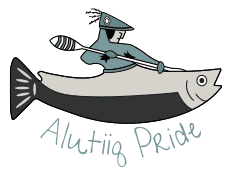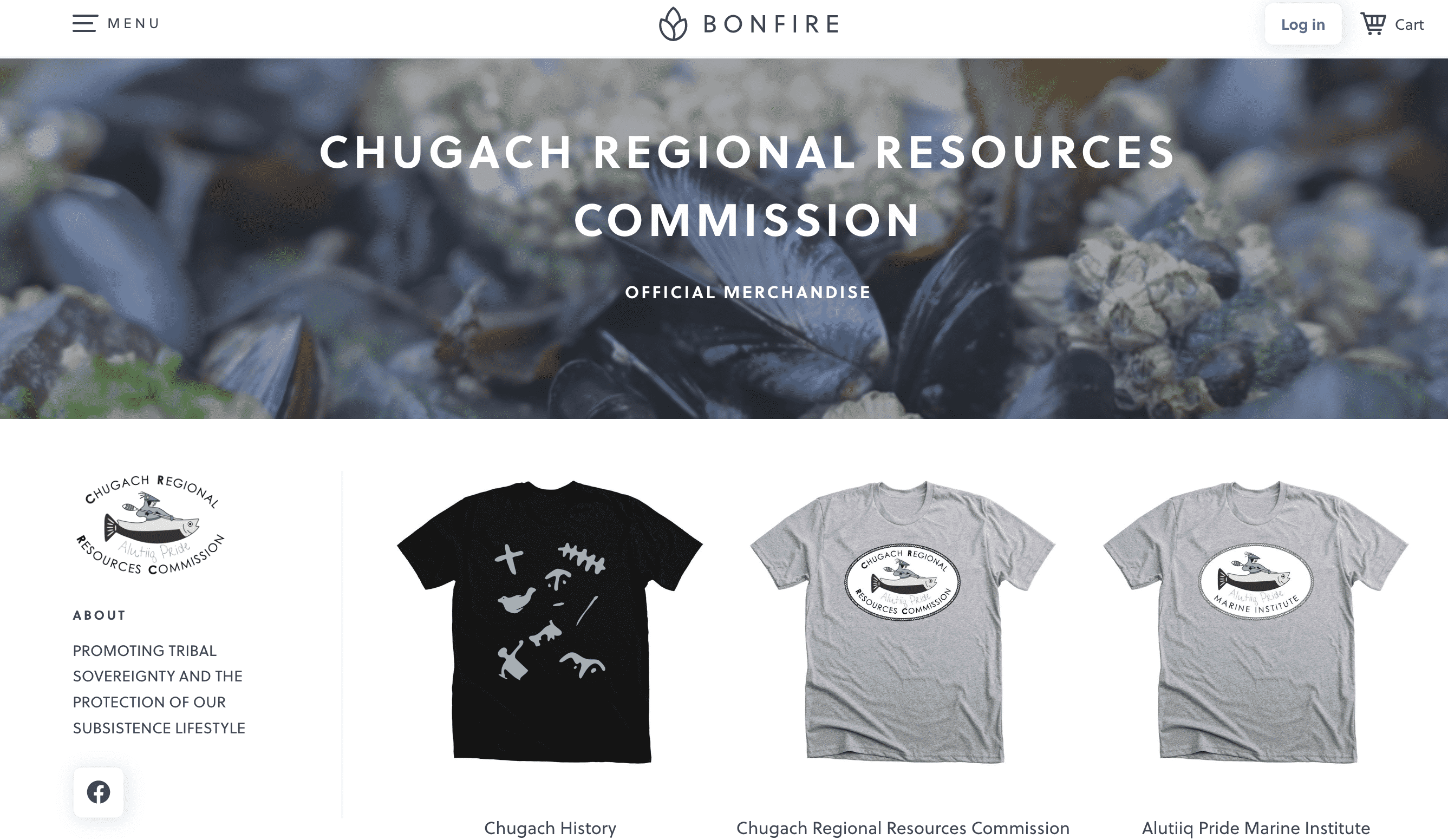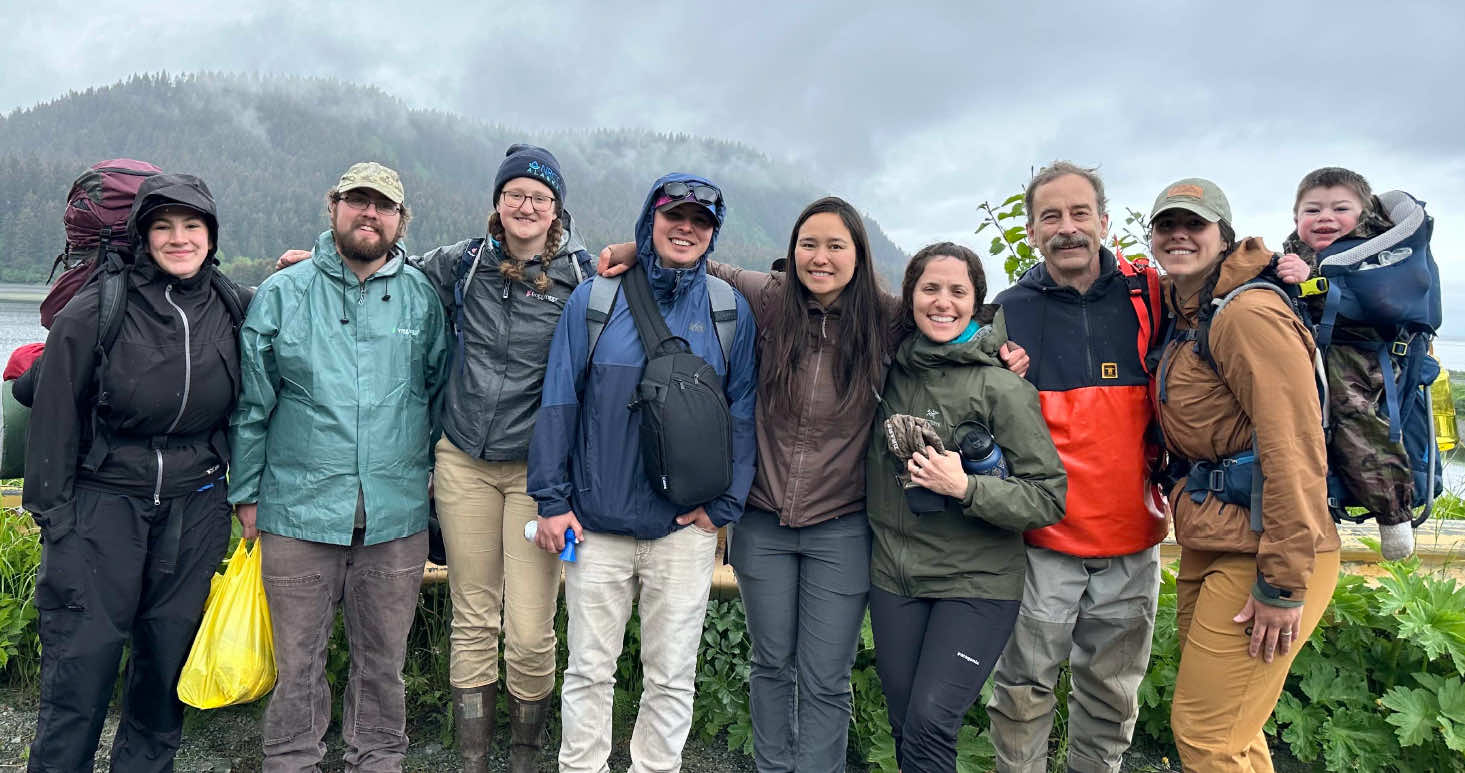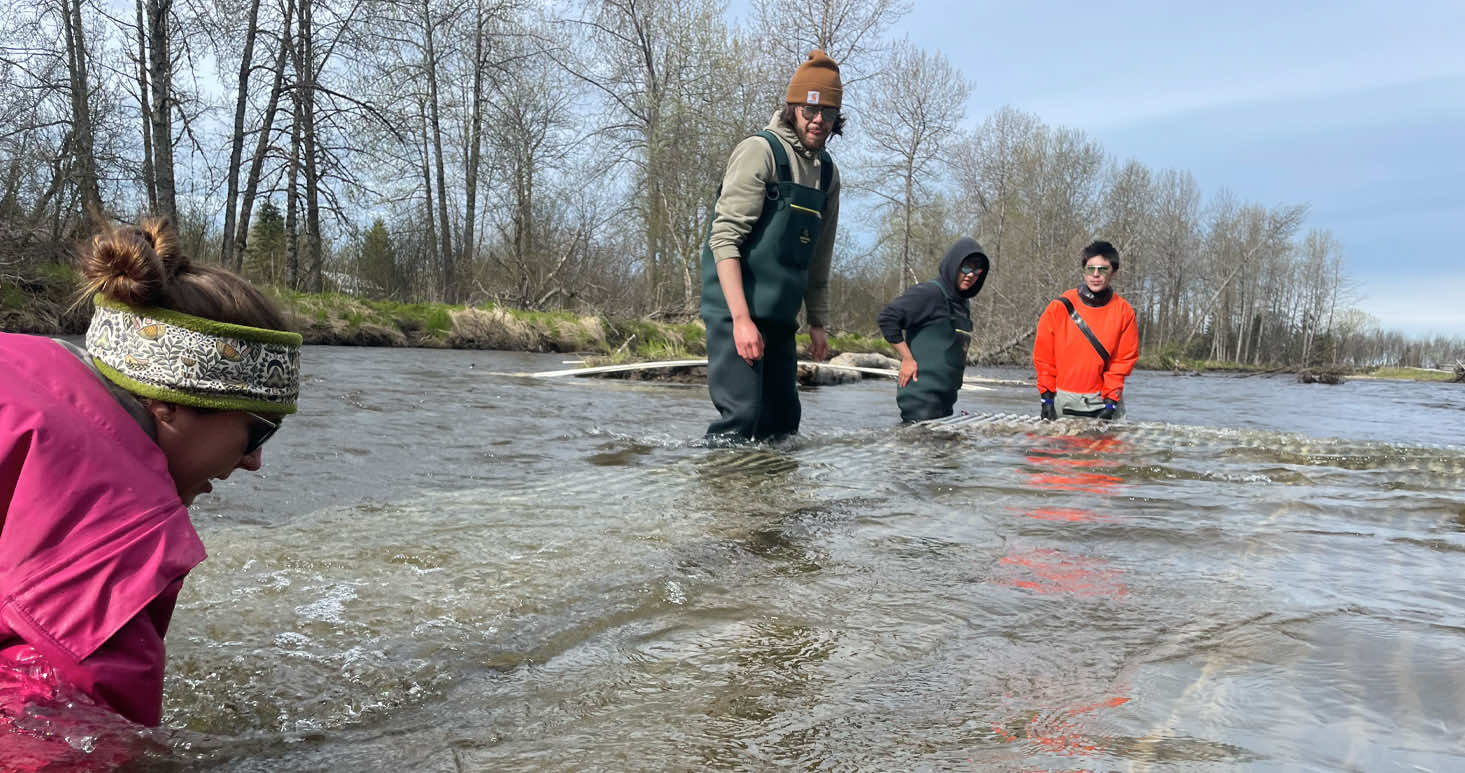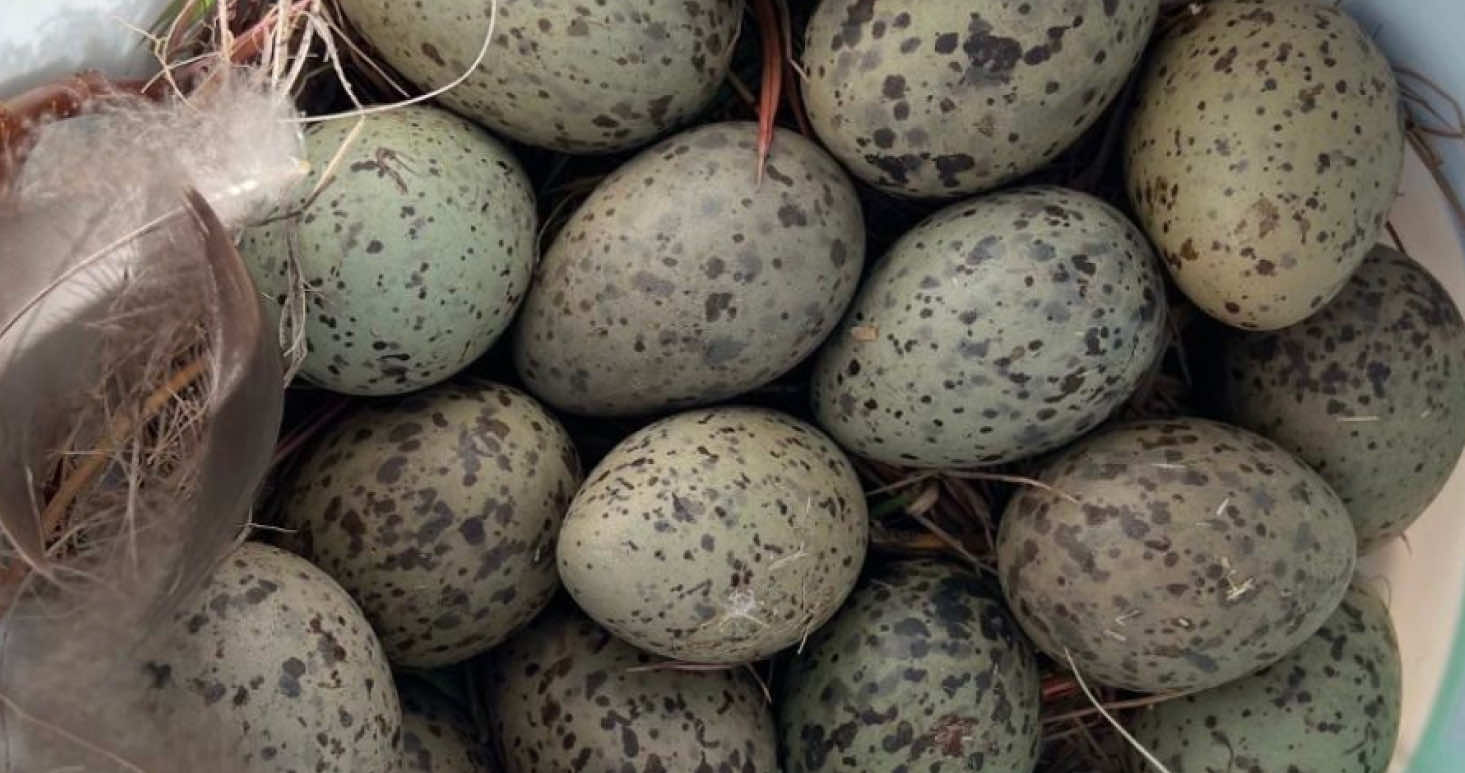CRRC 2023 Q1 Newsletter
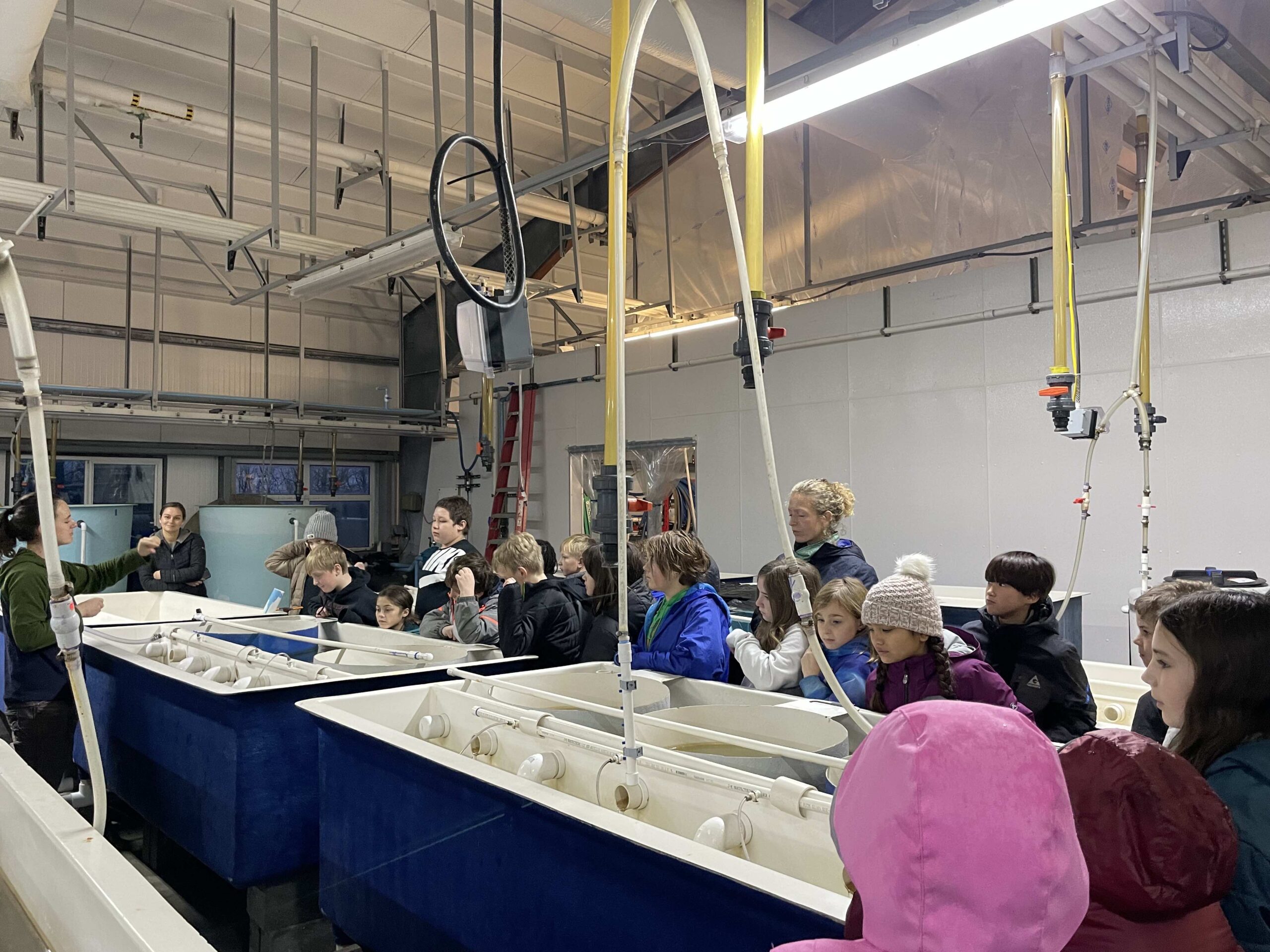
A new year, already? CRRC is excited for the new year and eager to share what our team has been up to in quarter one! With solstice behind us, we are looking forward to longer days and are feeling refreshed from the holiday break. We had time to reflect on this past year’s accomplishments, spend time with family, and celebrate winter festivities. We hope you all had a wonderful holiday season and are enjoying the longer days.
o the summer and some warmer weather!
Looking for a last-minute holiday gift? Look no further! Check out CRRC’s apparel here.
The Alutiiq Pride Marine Institute (APMI) had some visitors from Seward Elementary’s 4th-grade class. It’s safe to say Seward has a strong class of future scientists and kelp farmers!

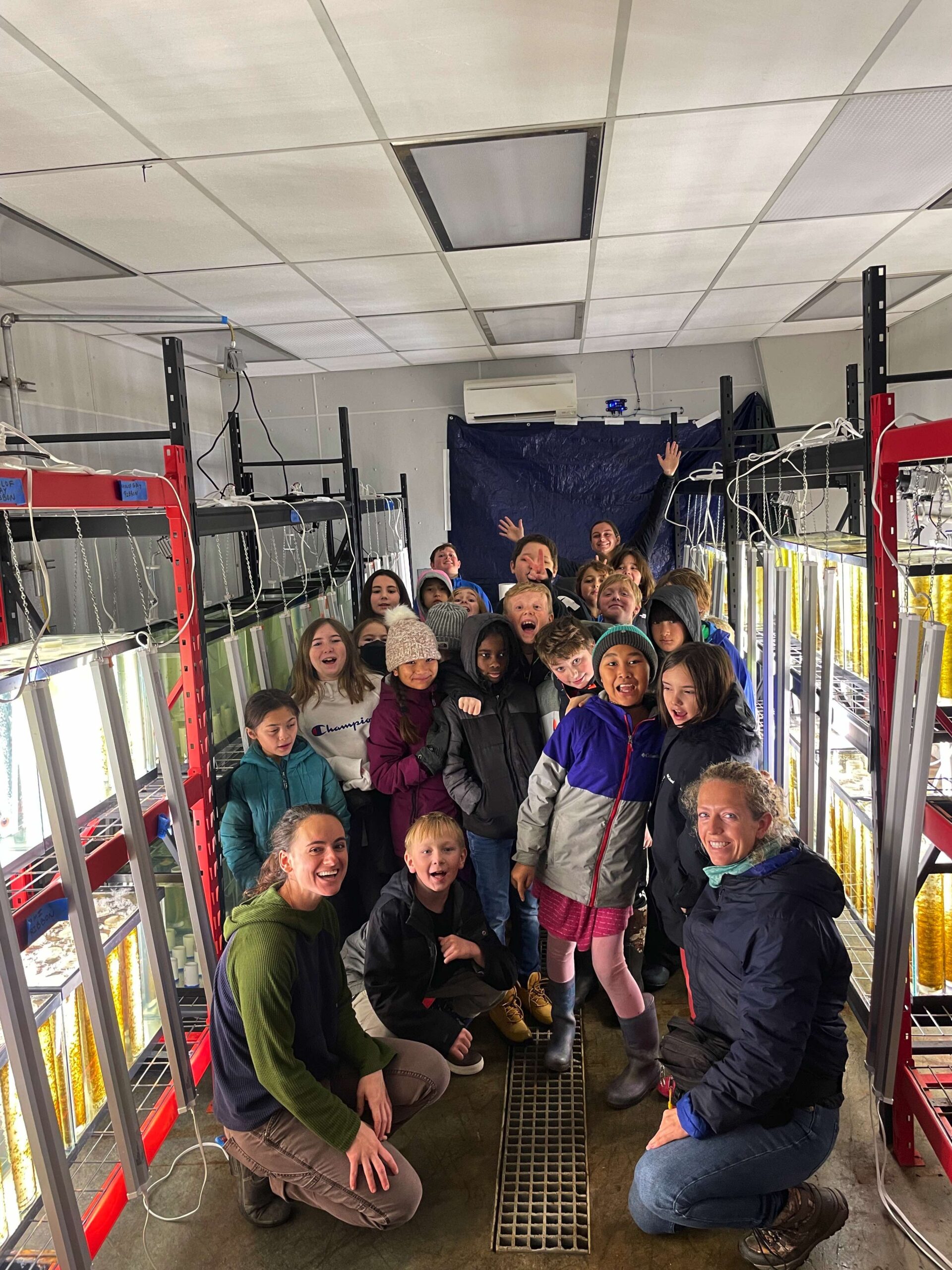
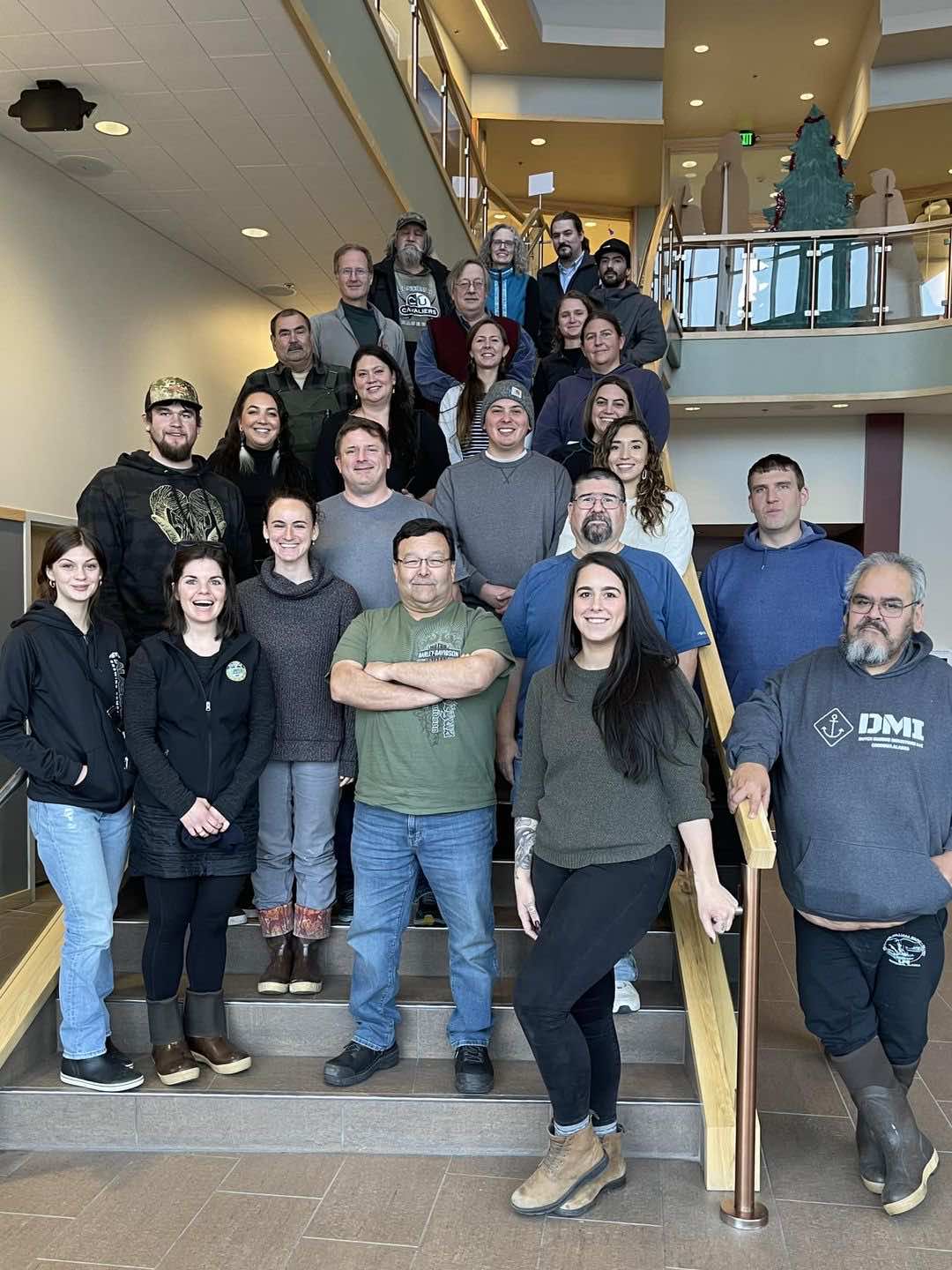
The Chugach Imaq Project
The Chugach Imaq Project is going to inform future research and management to protect marine mammals and safeguard cultural, economic, and subsistence needs. Imaq comes from the Sugt’stun language meaning the ocean and the contents within it. This project will identify and mitigate threats to marine mammals and human health through genetic analysis of subsistence-harvested marine mammals, conduct subsistence harvest surveys, ethnographic interviews, stock assessments, build community capacity and resilience, and empower community subsistence resource management. The Chugach Imaq project had its kickoff workshop this fall in Cordova!
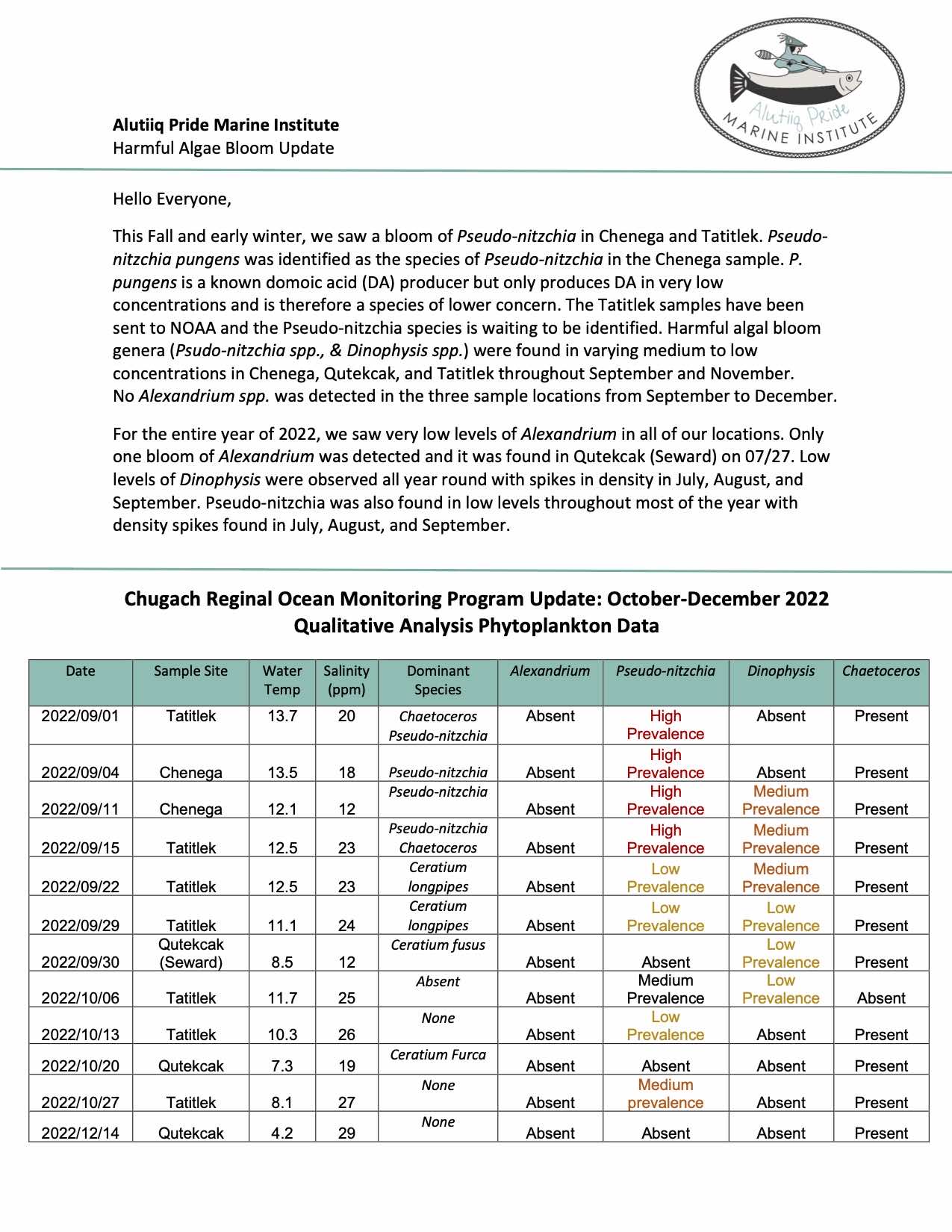
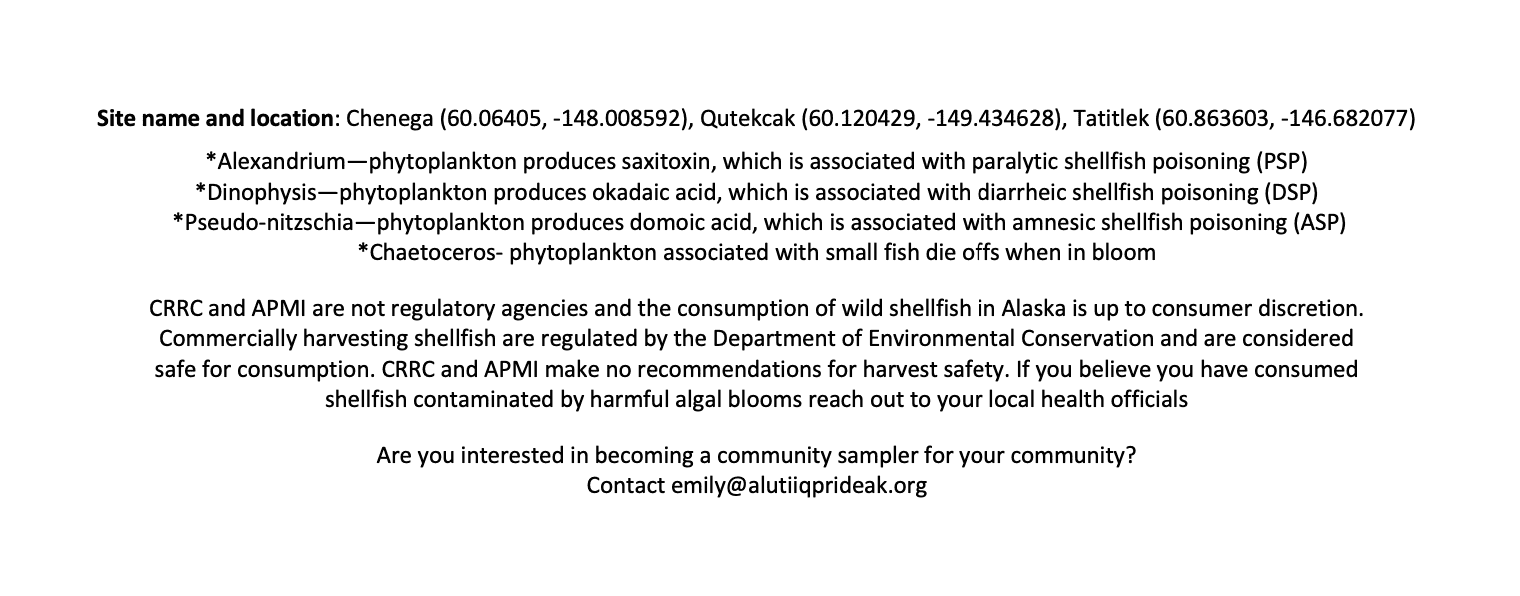

CRRC Launches Self-Paced Harmful Algal Bloom Training – Click here!
In this course, you will learn about harmful algal bloom monitoring program of the Chugach region led by the Chugach Regional Resources Commission’s Alutiiq Pride Marine Institute, HABs in Alaska, and how they are currently monitored. Lastly, we offer tips and tricks on how to integrate phytoplankton baseline data collection into your environmental program.
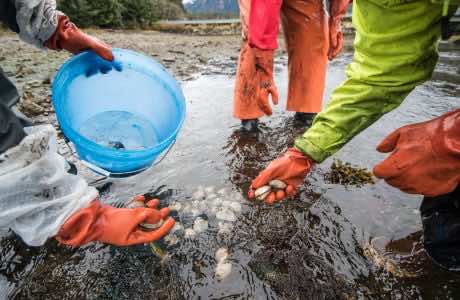
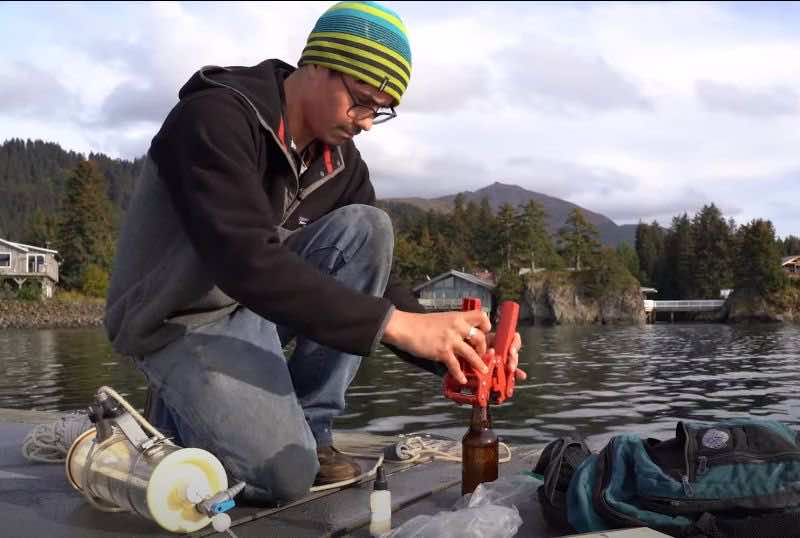
CRRC Launches Self-Paced Water Quality Monitoring Training – Click here!
In this course, you will learn about the water quality monitoring program of the Chugach region led by the Chugach Regional Resources Commission’s Alutiiq Pride Marine Institute, ocean acidification in Alaska, and how it is currently monitored. Lastly, we offer tips and tricks on how to integrate water quality baseline data collection into your environmental program.
